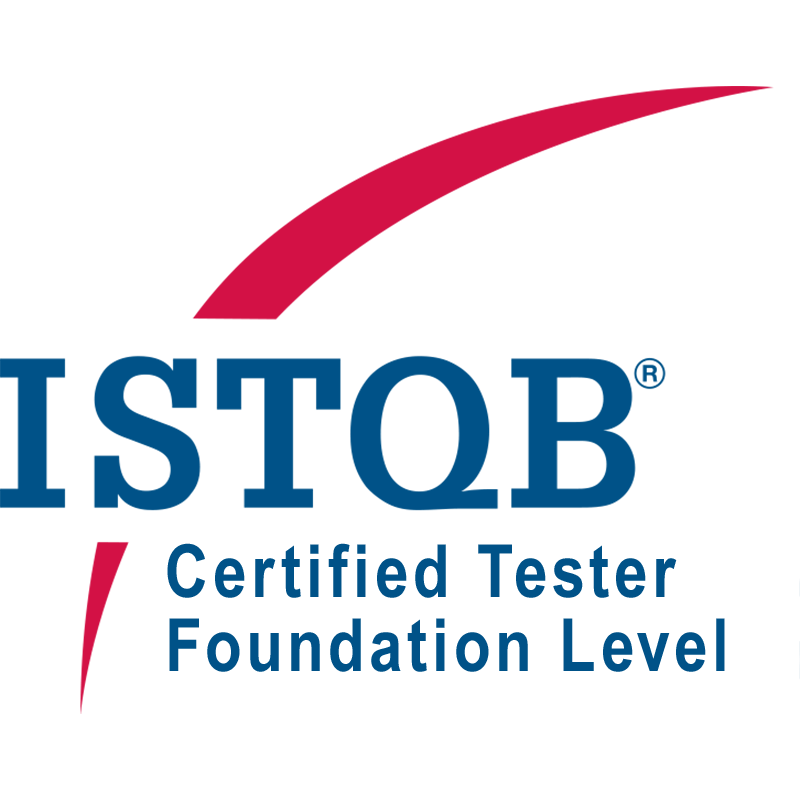CERTIFIED TESTER FOUNDATION LEVEL (CTFL)

Course Objectives
To provide an understanding of the fundamental principles of testing and explain different testing terminology. The course also provides an overview of different techniques, both dynamic and static and how to apply them.
Who will benefit?
This 3-day course is suitable for anyone who is involved as well as interested in software testing. This includes people in roles such as testers, test analysts, test engineers, test consultants, test managers, user acceptance testers and software developers. This Foundation Level qualification is also appropriate for anyone who wants a basic understanding of software testing, such as project managers, quality managers, software development managers, business analysts, IT directors and management consultants.
People possessing an ISTQB Certified Tester Foundation Level (CTFL) certificate may use the Certified Tester Foundation Level acronym CTFL.
Prerequisites
The entry criterion for the ISTQB Certified Tester Foundation Level (CTFL) certificate is that candidates have an interest in software testing. However, it is recommended that candidates also:
Have at least a minimal background in either software development or software testing, such as six months experience as a system or user acceptance tester or as a software developer;
Take a course that has been accredited to ISTQB standards (by one of the ISTQB-recognized member boards).
THE ISTQB CTFL SYLLABUS 2018;
accredited to ISTQB standards
Fundamental of Test
Why is Testing Necessary?
What is Testing?
Seven Testing Principles
Fundamental Test Process
The Psychology of Testing
Code of Ethics.
Testing Throughout the Software Life Cycle
Software Development Models
Test Levels
Test Types
Maintenance Testing
Static Techniques
Static Techniques and the Test Process
Review Process
Static Analysis by Tools
Testing Design Techniques
The Test Development Process
Categories of Test Design Techniques
Specification-based Techniques (black-box)
Structure-based Techniques (white-box)
Experience-based Techniques
Choosing Test Techniques
Test Management
Test Organization
Test Planning and Estimation
Test Progress Monitoring and Control
Configuration Management
Risk and Testing
Incident Management
Tool Support for Testing
Types of Test Tools
Effective use of Tools: Potential Benefits and Risks
Introducing a Tool into an Organization
The Exam
The Foundation Certificate is awarded to those who pass a written one hour multiple-choice exam of 40 questions that is set, moderated, marked and invigilated by an ISTQB licensed Exam Provider. Candidates must score 65% or more to pass the exam.
THE ISTQB CTFL SYLLABUS 2018;
Official Foundation Level Exam Contents
Agile Software Development
- Agile Software Development
- The Fundamentals of Agile Software Development
- Aspects of Agile Approaches
Fundamental Agile Testing Principles, Practices, and Processes
Software Development Models
- Test Levels
- Test Types
- Maintenance Testing
Agile Testing Methods, Techniques, and Tools
- Agile Testing Methods
- Assessing Quality Risks and Estimating Test Effort
- Techniques in Agile Projects
- Tools in Agile Projects
Testing Design Techniques
The Test Development Process
Categories of Test Design Techniques
Specification-based Techniques (black-box)
Structure-based Techniques (white-box)
Experience-based Techniques
Choosing Test Techniques
Test Management
Test Organization
Test Planning and Estimation
Test Progress Monitoring and Control
Configuration Management
Risk and Testing
Incident Management
Tool Support for Testing
Types of Test Tools
Effective use of Tools: Potential Benefits and Risks
Introducing a Tool into an Organization
The Exam
The Foundation Certificate is awarded to those who pass a written one hour multiple-choice exam of 40 questions that is set, moderated, marked and invigilated by an ISTQB licensed Exam Provider. Candidates must score 65% or more to pass the exam.
Ready to get started?
Get in touch, or register
